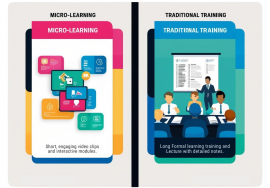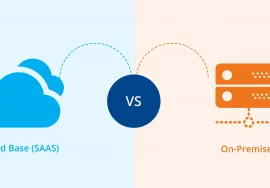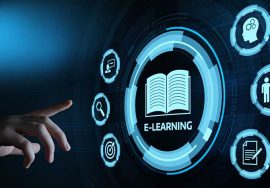From Garage to Greatness: How Customized E-Learning is Transforming the Automobile Sector
The automobile industry is undergoing rapid transformation, driven by technological innovation, evolving safety regulations, and increasing consumer expectations. Modern vehicles require highly skilled professionals across manufacturing, design, maintenance, and customer service. Customized e-learning provides automotive organizations with a strategic approach to enhance workforce skills efficiently, ensuring operational excellence and innovation.
Why Customized E-Learning Matters in the Automobile Sector
Traditional training methods, such as classroom-based sessions or on-the-job instruction, often fall short in delivering consistent and scalable learning experiences. Customized e-learning addresses these challenges by offering training modules tailored to the specific needs, roles, and skill levels of employees.
A McKinsey report shows that technological changes in the automotive sector are creating skill gaps in over 30% of the existing workforce.
Key Benefits of Tailored E-Learning for Automotive Professionals
Role-Specific Training for Every Department
Customized modules ensure each employee receives training relevant to their specific role—whether on the assembly line, in R&D, or in customer service.
Consistent Knowledge Delivery Across Teams
Standardized e-learning ensures every employee gets the same level of instruction, creating uniform expertise across the organization.
Flexible Learning Paths for Busy Professionals
Employees can access modules anytime, anywhere, balancing learning with production schedules.
Cost Efficiency and Scalability
Reduces travel, instructor fees, and downtime while enabling large-scale workforce training.
Rapid Updates to Stay Ahead of Industry Changes
E-learning can be quickly updated to reflect new technologies, safety regulations, or best practices.
Applications of Customized E-Learning in Automotive Operations
Technical Training: Engines, Robotics, and EV Systems
Employees gain practical knowledge in engine diagnostics, electric vehicle systems, robotics integration, and advanced manufacturing techniques.
Compliance and Workplace Safety Training
E-learning ensures adherence to OSHA regulations, environmental standards, and workplace safety protocols.
Sales and Customer Engagement Skills
Dealership staff and support teams receive training in product knowledge, digital sales tools, and client engagement strategies.
R&D and Innovation Training
Simulation-based learning allows R&D teams to test designs, vehicle performance, and new technologies safely and efficiently.
Operational Excellence Through E-Learning
Customized e-learning is not limited to technical skills—it also enhances operational excellence by developing capabilities in customer handling, performance tracking, and soft skills.
Customer Handling
Interactive modules improve communication, empathy, and problem-solving, helping service and sales teams deliver superior customer experiences.
Performance Tracking
E-learning analytics track employee progress, identify skill gaps, and help management monitor KPIs and productivity effectively.
Soft Skill Development
Training modules focus on leadership, teamwork, time management, and adaptability, essential for creating a high-performing workforce.
Top Features of Effective Automotive E-Learning Modules
Interactive Simulations for Practical Learning
Hands-on virtual scenarios enable employees to apply knowledge without real-world risk.
Gamification to Boost Engagement
Quizzes, badges, and challenges motivate learners and increase knowledge retention.
Microlearning for Quick Knowledge Retention
Short, focused lessons help busy professionals learn efficiently.
Analytics and Reporting to Track Progress
Real-time insights identify skill gaps and help refine training strategies.
Future Trends in Automotive E-Learning
As the automobile sector increasingly integrates digital technologies, e-learning will play a pivotal role in workforce readiness. Emerging trends include:
- Virtual Reality (VR) Training: Immersive VR simulations for assembly line operations, safety drills, and vehicle testing.
- Artificial Intelligence (AI)-Powered Learning: Personalized learning paths based on employee performance and skill level.
- Augmented Reality (AR) Assistance: On-the-job guidance through AR-enabled devices for maintenance and repair tasks
FAQs
- Why should automotive companies invest in customized e-learning?
Customized e-learning enhances workforce skills, ensures compliance with industry standards, reduces costs, and keeps employees updated with rapidly evolving technologies. - How can e-learning improve safety in the automobile sector?
By providing standardized safety protocols, interactive simulations, and continuous assessment, e-learning minimizes workplace accidents and promotes a culture of safety. - Is e-learning suitable for all roles in the automotive industry?
Yes. From technical staff to sales and customer support teams, e-learning can be tailored to meet the unique requirements of each role. - How do customized e-learning modules support innovation?
Through simulation-based training, R&D employees can experiment with new designs and technologies safely, fostering creativity and innovation. - What technologies enhance automotive e-learning experiences?
VR, AR, AI, and gamification significantly improve engagement, retention, and practical skill application.
Driving Innovation and Growth Through E-Learning Solutions
As the automobile sector evolves, organizations must equip their workforce with up-to-date knowledge and specialized skills. Customized e-learning bridges the gap between traditional training and modern demands, delivering targeted, interactive, and scalable learning experiences. By investing in tailored e-learning solutions, automotive companies can improve performance, foster innovation, and maintain a competitive edge in a fast-paced industry.








